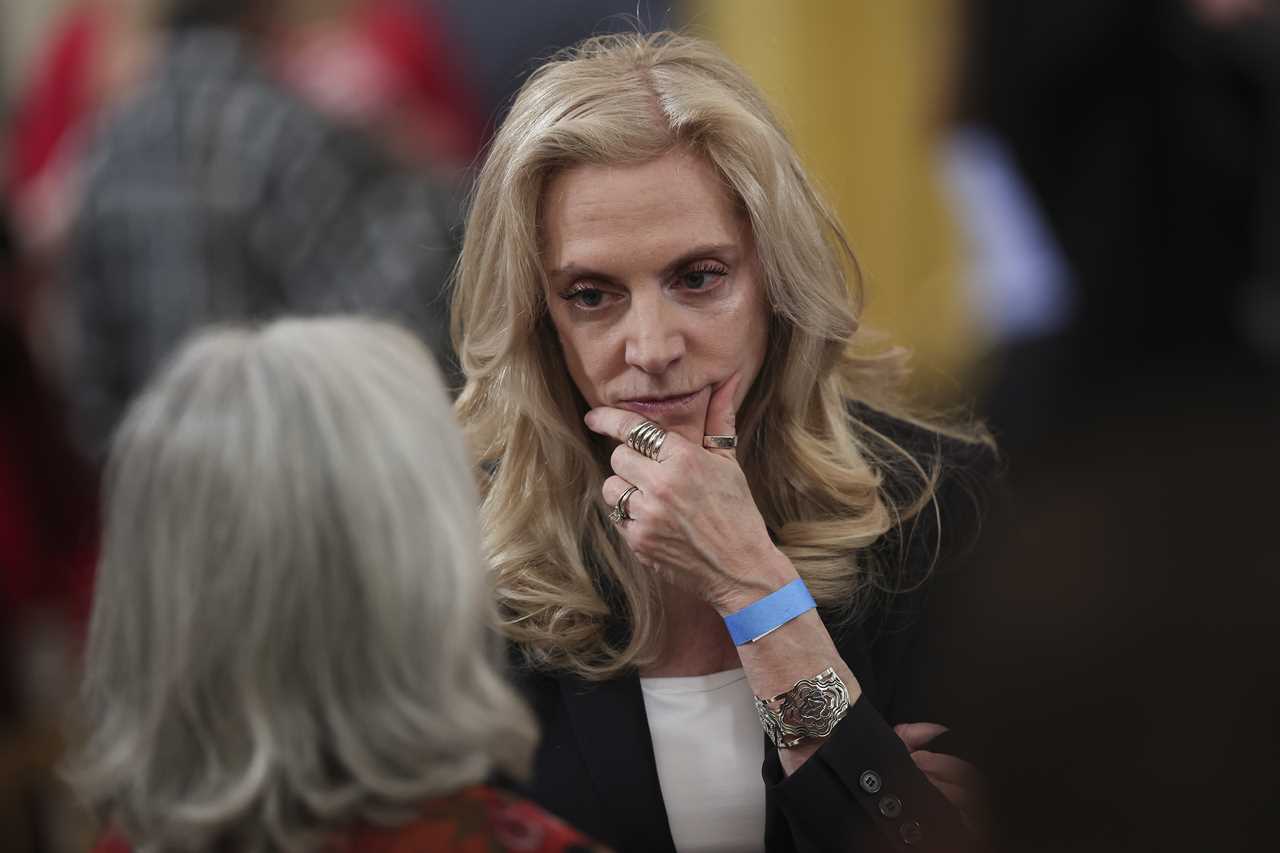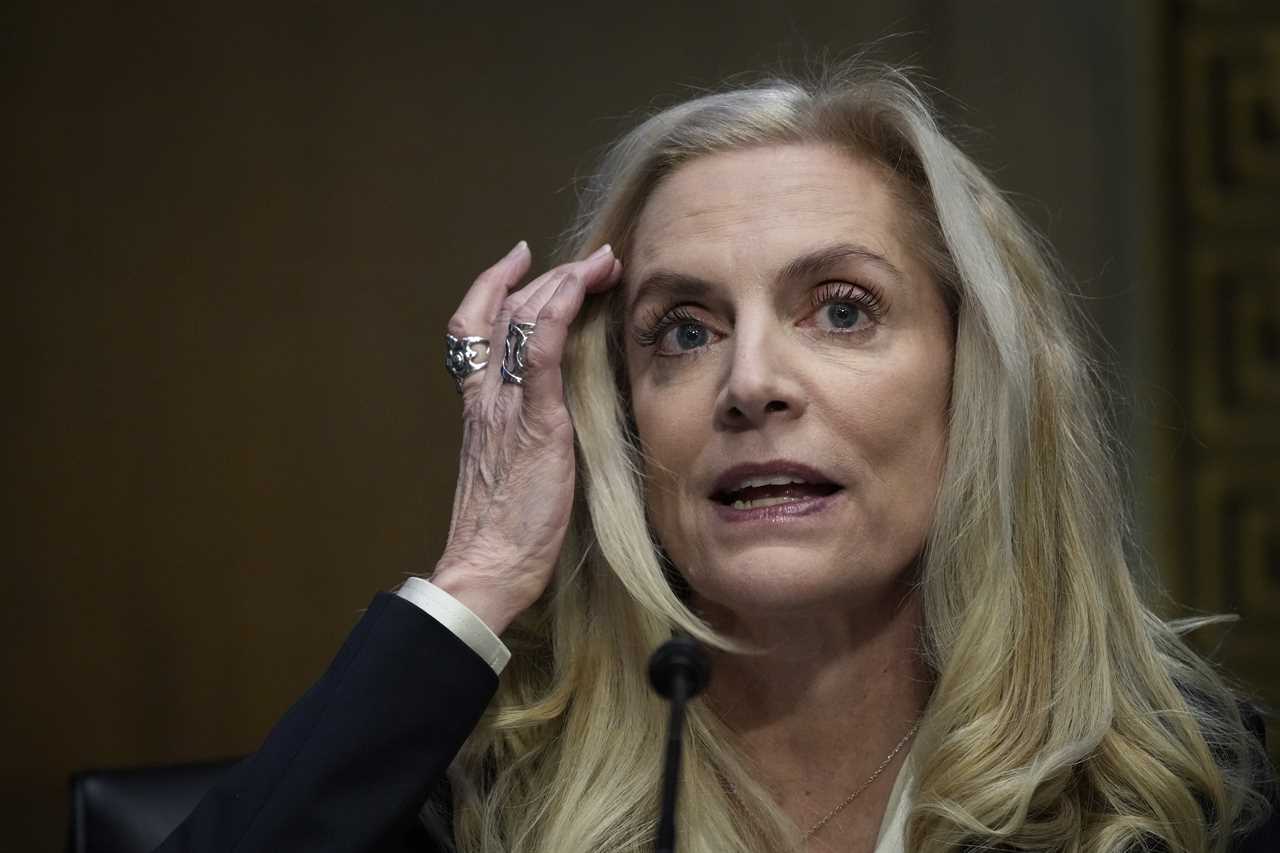
President Joe Biden’s point person on the crisis in the banking industry is in an awkward position.
Lael Brainard arrived at the White House less than two months ago — after nearly a decade on the board of the Federal Reserve that included a stint as chair of the central bank’s financial stability committee.
But while those may be excellent credentials for leading a response to the biggest financial upheaval since the 2008 crash, Brainard’s past at the Fed is constraining her from taking a more public role, according to four people close to the White House and financial reform advocates.
As a Fed governor, Brainard voted along with the rest of the board for the series of interest rate hikes that helped push two weak banks to failure in March. And though she has long been a vocal champion of strong bank oversight, financial reform advocates — and even some White House allies — are asking whether she will be tagged with any responsibility herself for the Fed’s failure to spot problems at Silicon Valley Bank and Signature Bank before they imploded in March.

“All of the failure of supervision stuff for the last six to nine months implicates the Fed,” said a person close to the White House, who requested anonymity to speak freely about a sensitive personnel topic. “And all the investigations will focus on the Fed. There is just no way that can’t be awkward both for Lael and for the White House, even if there is nothing specific she did wrong.”
Behind the scenes, Brainard has been taking a lead role in the administration's efforts to deal with the failed banks and reassure depositors that their money is safe, according to half a dozen senior administration officials and several others close to Brainard outside the White House. And in an extraordinary move driven by Brainard, the White House recently called on the Fed to undo many of the deregulatory steps that it took during the Trump administration — actions that Brainard had opposed while she was there.
Her role in mapping out a policy to deal with the turmoil underscores how quickly the administration realized it was facing a potential crisis for the economy and Biden’s re-election chances.
But some of the people inside and outside the administration say her association with the Fed — the main regulator of the nation's banks — leading up to the meltdown of the two lenders is also limiting her ability to publicly challenge the central bank's actions, given the tradition in which former Fed officials refrain from criticizing onetime colleagues.
“There is a social, institutional, and reputational cost to being viewed as violating Federal Reserve norms of clubbiness,” said Jeff Hauser, director of the Revolving Door Project. “Being perceived as `politicizing the Fed' would likely cause members of the Fed club to view her as disloyal. It's also likely that even as Brainard was perhaps the best dissenter ever at the Fed, that nonetheless she felt pressure to pull some punches.”
The White House declined to make Brainard available for an interview.
White House officials rejected the idea that she is shying away from criticizing the Fed. Instead, they argue that her dissents at the central bank speak for themselves and that when the crisis hit, Brainard simply dug deep into the work of helping organize the response while keeping Biden and new White House Chief of Staff Jeff Zients briefed on developments.
These people say that public communication was rightly limited to principal players including the president, Treasury Secretary Janet Yellen, FDIC Chair Martin Gruenberg and Fed Chair Jerome Powell. The new NEC director will eventually play a more visible role, they say.
Brainard played the most critical part inside the White House in selling Biden on the need to designate SVB and Signature as risks to the financial system, opening them up to a federal rescue of their depositors, according to the people.
Biden, bruised by the political blowback over Wall Street bailouts when he served as vice president, entered the March weekend of SVB’s collapse wary of anything that could be seen as rescuing the well-heeled tech executives and investors who made up much of SVB’s deposit base.
It fell to Brainard to explain why such a big federal move — which could be taken as an implicit guarantee for all deposits of any failing FDIC-insured institution — was the only option to avoid a much longer and more brutal crisis.
White House colleagues praise Brainard’s work under pressure the weekend SVB collapsed.
“She knows how the Fed works, she knows how Treasury works and how the entire bank regulatory system works,” said Bharat Ramamurti, deputy NEC director and former senior staffer for Sen. Elizabeth Warren who was a candidate for the top NEC job before it went to Brainard.
Ramamurti and other senior administration officials said Brainard quickly delegated her staff to assess market conditions and the likely impact of various possible solutions proposed by other agencies. Then she organized it all into concise briefings for Zients and Biden.
“Communication was clear, tasks were well-assigned and it never felt like we were just spinning around,” Ramamurti said of the wild March weekend when White House, Fed, Treasury and FDIC officials conducted nearly nonstop video calls to get to a solution before markets opened in Asia.
As for her previous role at the Fed, Brainard’s many defenders across the ideological spectrum say that not only did she not do anything wrong while serving as vice chair, but that she strongly and publicly dissented from efforts to roll back regulations — often acting alone. She repeatedly warned that they could lead to just this kind of crisis.
“Lael fought an incredible rearguard action against all the nonsense,” said MIT Professor Simon Johnson, a proponent of tougher banking rules. “There was no one else left in the room. I have no idea how she did it. But thank goodness she stuck it out.”
Still, as the banking crisis saga moves further into the phase of hearings, blame-casting and calls for change, Brainard’s years at the Fed will likely get a closer look from Congress.
Republicans say the collapse of SVB and Signature was the result of both mismanagement at the banks and the failure of regulators, primarily the Fed, rather than the result of all the Trump-era rule relaxation. They contend that Fed governors should have known that their interest rate hikes could topple weak banks.
At a recent hearing, Sen. Tim Scott (R-S.C.), the ranking member on the Banking Committee and a likely 2024 GOP presidential contender, said the Fed “should have been keenly aware of the impact interest rate hikes would have on the value of securities, and it should have been actively working to ensure the bank and supervisors were hedging their bets and covering their risk accordingly.”
In a letter to Powell and San Francisco Fed President Mary Daly, Scott wrote of the “apparent failure of SVB’s regulators, including the Federal Reserve, the primary federal regulator responsible for examining and supervising SVB, to ensure that the bank operated in a safe and sound manner.”
The Fed itself is looking for answers.
Michael Barr, the vice chair of supervision who is conducting an internal review of rules on bank capital and oversight issues, acknowledged that everyone who worked at the Fed in the years leading up to the bank failures would probably come under scrutiny.
“We expect to be held accountable,” he told lawmakers last month.
Some Democrats also ripped into Fed regulators both in California and Washington for failing to escalate warnings about SVB’s rapid deposit growth and ballooning balance sheet problems into earlier action.
“It’s just a complex moment for Lael because most of the ballgame is around the Fed and most of the discussion now is about investigating potential supervisory failures,” the person close to the White House said. “It’s a tough spot for her.”
----------------------------------------
By: Ben White
Title: Biden’s economic chief draws doubts over her Fed past
Sourced From: www.politico.com/news/2023/04/10/lael-brainard-fed-past-00090245
Published Date: Mon, 10 Apr 2023 03:30:00 EST






